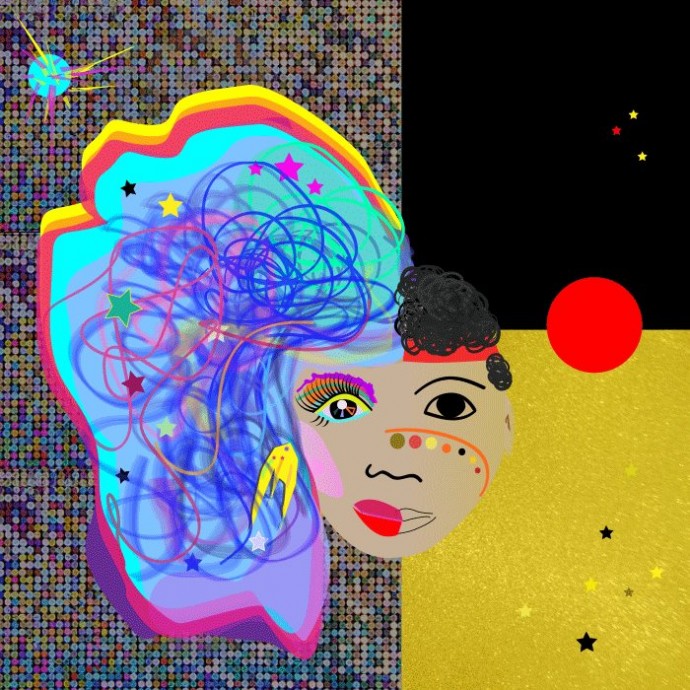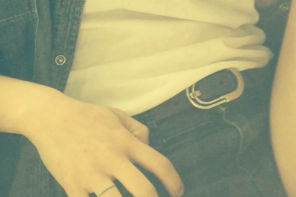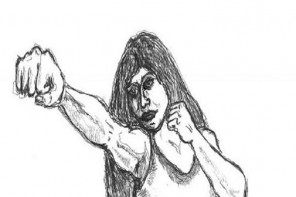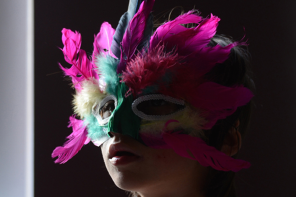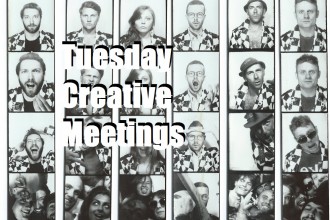As the world continues to become more open-minded, a larger than life individual from the western world finds her place in one of the oldest living tribal societies on the planet. Youth worker and hairdresser, Starlady, or Starlady Nungari, tells her story of liberation and self-discovery in an unlikely situation.
Personally I identify as transgender, but within Indigenous culture in central Australia I culturally identify as a woman.
I started wearing mini-skirts when I was 18—hot pink, micro, and sparkling—but, originally, I never considered myself gender diverse I just wanted to bend the rules. I felt the need to liberate myself and challenge the constructs of our society. I wore make-up and dresses because we weren’t meant to, and I discovered creativity and self-expression.
I first met members of the Sistergirl (Indigenous transgender women) community whilst I was working on Palm Island in 2005, and I was really struggling in identifying with gay male culture. I wasn’t really aware of it at the time, but this is where my gender identity first began to internally shift.
Afterwards, I moved to live in the central desert and upon arrival I adamantly claimed a female skin name, Nungari. There are strict cultural divisions between men and women in Indigenous lore and I knew where I belonged within that.
My gender identity has evolved over many years, does it really have to be so binary?
I left my home in Melbourne in 2000 on this crazy renegade activist road trip to central Australia. I remember this overwhelming sense that I was about to embark on a great journey, that the desert was calling me. The sense was inescapable, and I was consumed by this drive and passion to make this journey real.
On this journey, I discovered that the Australian desert is a really spiritually powerful place; it’s a really confronting space. You are forced to face yourself, and, at the time, I’d just came out of a really self-destructive part of my life, partying, drugs, and generally trying my utmost to escape reality. I grew up in rural Victoria (a tiny state located at the bottom of Australia) in an era that was incredibly homophobic. The discrimination and violence that I experienced had taken an incredible toll on my mental health. At that time of my life, I really needed the reality check that the desert had to offer. I needed to heal and to grow.
Now, I travel thousands of kilometres across the central desert with my mobile hair salon to deliver hairdressing and fashion workshops to some of the most remote Indigenous communities in Australia.
I want to be clear. I ain’t no charity worker nor am I going out to the desert to “save” anyone. I am, however, into the idea of cross cultural exchange and working together, so I create spaces where young people can feel free to express themselves, explore their identities and creativity, and be inspired to live out their full potential. Hairdressing is an amazing medium for creative self-expression.
There is a natural talent and great love for hairdressing that I sense is not new and comes from ancient traditions. I aim to provide the tools and skills necessary to develop that talent.
I’ve worked in well over 30 different Indigenous communities across the country and, because my workshops are infamous and incredibly popular with youth and young adults, I have developed a strong understanding of Indigenous youth culture. I love that I can create spaces where they feel safe and take ownership over their creations. Ha! I’m a sucker for giving them preferential treatment and making sure they get the best hairstyles and hottest fashion! I worry for them. I understand what it can be like growing up isolated and having to face discrimination on many different levels.
Sometimes visiting professionals come through the creative spaces that I use to engage young people and fail to understand the complex barriers and issues that young people are facing in remote Indigenous communities.
They want real jobs and real training and dismiss my workshops as “entertainment.” But my programs are incredibly planned and tailored to successful engagement. I understand the steps that young people first need to make in developing their self-esteem and confidence so that they can move forward. Simple: my job is to be fabulous!
There are communities here in central Australia that are really supportive of diversity, but like many places in Australia, young people can also face incredible discrimination when expressing their sexuality and gender diversity. When I first worked in remote Indigenous communities, experiencing the intergenerational trauma, constant funerals, and youth suicide’s was very challenging.
As a visitor I felt removed from the constant cycle of trauma that I was witnessing. Last year, two young people I worked with committed suicide. I was absolutely devastated and no longer a witness to the cycle of trauma. It made me very aware that I wasn’t a visitor anymore that the people I work with had become my friends and family. I still miss them.
To combat discrimination, a group of us created Sisters & Brothers NT, an advocacy group for Indigenous and non-Indigenous GLBTI people in our region. Many of the founding members of our organisation are Sistergirls, transgender Indigenous women. We travel all across the country now advocating for Indigenous GLBTI, Sistergirl and Brotherboy (Indigenous transgender males) youth living in remote and regional areas.
Those girls are family to me now; we’ve made each other strong. As a transgender lady living in some of the remotest parts of Australia, it can be, at times, very isolating. The Sistergirls embraced me and welcomed me into their community.
I personally feel accepted for who I am. Colonisation and religion has had an impact on culture that has generated levels of homophobia and transphobia. Sometimes I have religious discussions with people that are very homo/transphobic but somehow they exclude me from that judgement.
Love and friendship can overcome many things. People have made me cry with such beautiful statements, “We used to be afraid of people like you Starlady, but you’re our friend now and we love you.”
I think the open-heartedness of the people here make shifting any homo/transphobic attitudes simpler. In some communities, I feel so inspired when people approach me just to let me know that they accept diversity in their community and am happy that I’m here to work with their young people.
Sometimes I feel the desert people have a lot about acceptance that they can teach the rest of Australia.
I feel honoured to have a place within their society. Nowhere else in the world have I experienced the support and generosity of spirit that the Indigenous people of central Australia have offered me. I feel that I belong here.
To find out more about Queen of the Desert, Alex Kelly’s documentary on Starlady go to: http://vimeo.com/50807152
To check out the Sisters & Brothers NT group go to their website at: http://sistersandbrothersnt.com/

